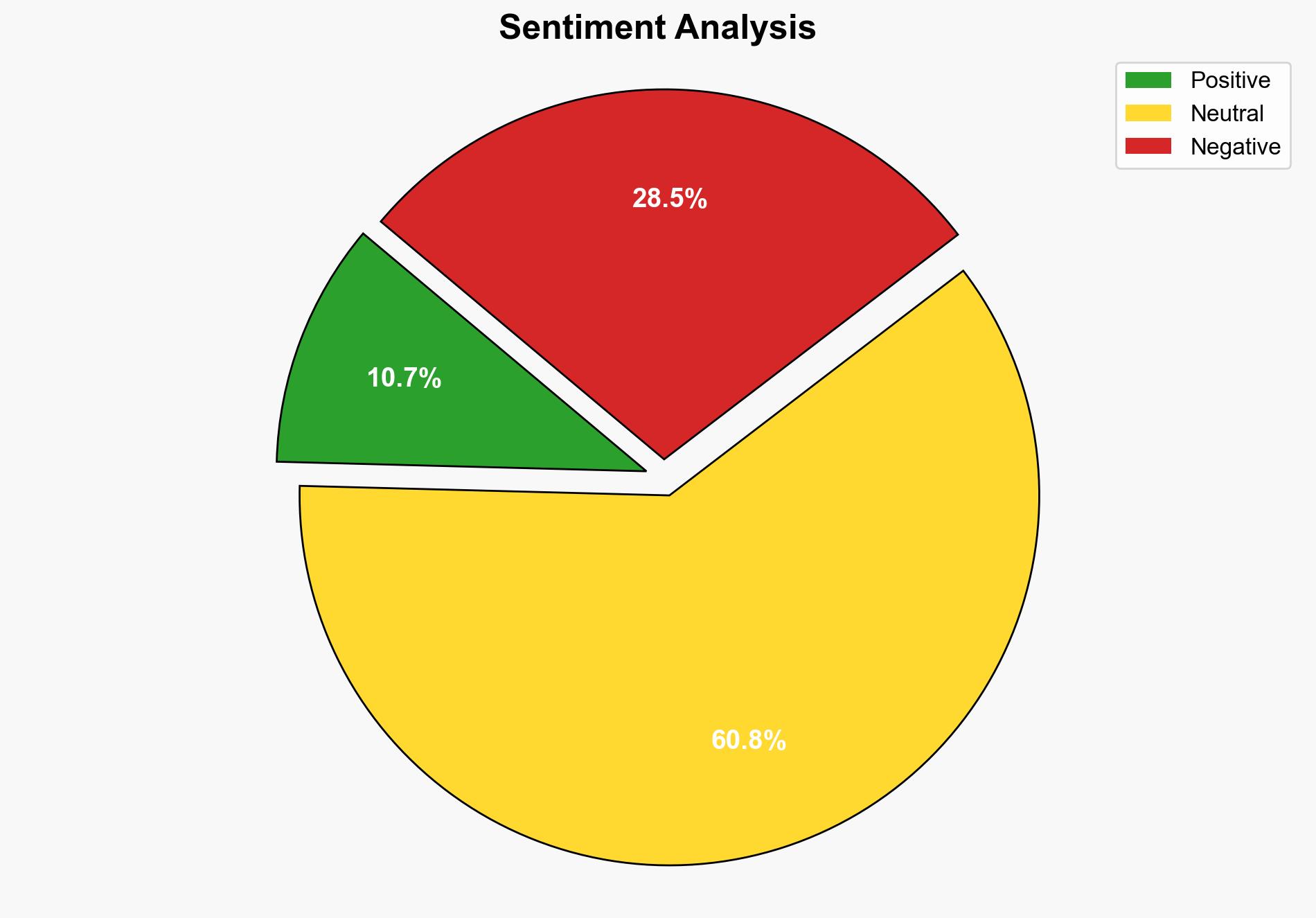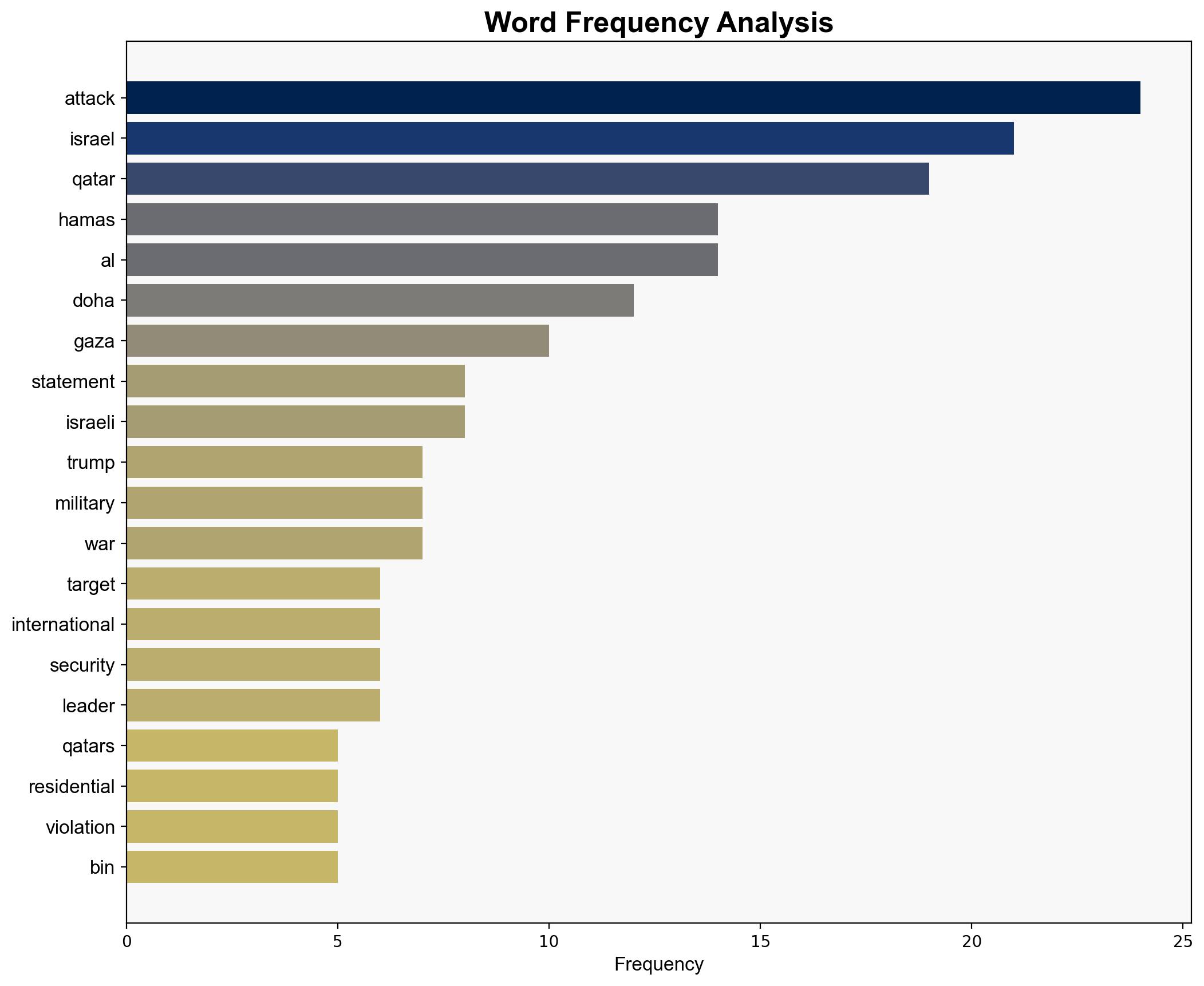Qatar condemns cowardly Israeli attack in Doha – Al Jazeera English
Published on: 2025-09-09
Intelligence Report: Qatar condemns cowardly Israeli attack in Doha – Al Jazeera English
1. BLUF (Bottom Line Up Front)
The most supported hypothesis is that the Israeli attack in Doha was a targeted operation against a Hamas leader, perceived by Israel as a legitimate counter-terrorism action, despite Qatar’s condemnation and claims of sovereignty violation. Confidence level: Moderate. Recommended action: Engage in diplomatic dialogue to de-escalate tensions and prevent further regional instability.
2. Competing Hypotheses
1. **Hypothesis A**: The Israeli attack was a deliberate counter-terrorism operation targeting a Hamas leader, justified by Israel’s security concerns, with prior knowledge or tacit approval from the United States.
2. **Hypothesis B**: The attack was an unauthorized and reckless action by Israel, violating international law and Qatari sovereignty, with no prior notification to Qatar or the United States.
Using the Analysis of Competing Hypotheses (ACH) 2.0, Hypothesis A is better supported due to the Israeli Prime Minister’s confirmation of the attack’s intent and the U.S. administration’s acknowledgment of being informed post-factum. However, Qatar’s strong denial of prior notification and its mobilization of legal measures against Israel lend some credence to Hypothesis B.
3. Key Assumptions and Red Flags
– **Assumptions**: Hypothesis A assumes Israel’s actions align with its historical counter-terrorism strategies and that the U.S. was informed, albeit post-action. Hypothesis B assumes a lack of coordination and communication between Israel, Qatar, and the U.S.
– **Red Flags**: Qatar’s denial of prior notification raises questions about communication channels. The strong rhetoric from Qatar and the lack of immediate U.S. condemnation suggest potential diplomatic misalignment.
– **Blind Spots**: The absence of independent verification of the attack details and the motivations behind the U.S. response.
4. Implications and Strategic Risks
The attack risks escalating tensions between Israel and Qatar, potentially destabilizing regional alliances and affecting U.S. diplomatic efforts in the Middle East. Economic impacts could arise from disrupted relations, while geopolitical risks include retaliatory actions by Hamas or other regional actors. Cybersecurity threats may also increase as state and non-state actors exploit the situation.
5. Recommendations and Outlook
- Initiate diplomatic talks between Israel, Qatar, and the U.S. to clarify communication protocols and prevent future incidents.
- Encourage regional cooperation to address counter-terrorism while respecting sovereignty.
- Scenario Projections:
- Best: Diplomatic resolution and strengthened regional security cooperation.
- Worst: Escalation into broader conflict involving multiple state and non-state actors.
- Most Likely: Continued diplomatic tensions with intermittent incidents.
6. Key Individuals and Entities
– Sheikh Tamim bin Hamad Al Thani
– Donald Trump
– Benjamin Netanyahu
– Steve Witkoff
– Khalil al-Hayya
– Bader Saad Mohammed Al Humaidi Al Dosari
– Majeed Al Ansari
7. Thematic Tags
national security threats, cybersecurity, counter-terrorism, regional focus





